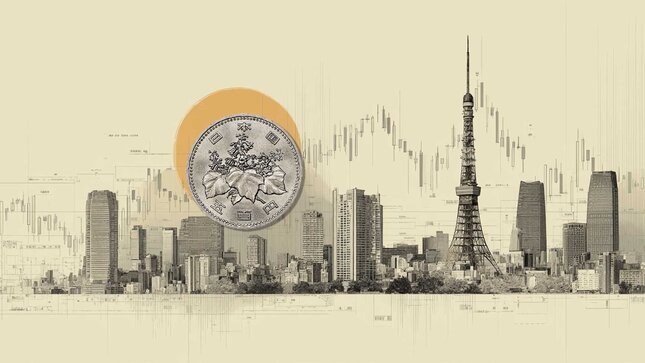Although the prevailing assumption is that bitcoin promises anonymity, this is untrue. In general, bitcoin and cryptocurrencies aim to offer secure financial transactions outside of government oversight. What is sought by cryptocurrencies is the algorithmic control of monetary transactions, replacing the power of banks and the state. This is the mission it serves and can lead to the success of cryptocurrencies.
Do cryptos promote anonymity?
Regarding anonymity, about which much has been said, one comparative advantage of bitcoin and cryptocurrencies is that transactions with them tend to be much more visible than bank transactions because no privacy rules like those of banks protect bitcoin holders.
It is straightforward for someone to observe transactions on the blockchain. Not only is the chain publicly visible, but since blockchain addresses have a unique identifier associated with them, transactions can be easily tracked as they move between addresses. What is needed is to map the ID to a specific person, which is usually easy because any movement in and out of fiat currency through crypto wallets happens through the regulated financial system, with the help of crypto exchanges that are forced to comply with regulatory requirements.
Thus, law enforcement authorities can successfully identify criminals who aim to use bitcoins to disguise their money flow; however, they cannot always arrest these criminals because they may reside in countries that may even encourage malware attacks.
KYC and AML
Despite the delay shown by the financial authorities to recognize cryptocurrencies as an accepted financial instrument, the regulatory authorities are now tasked with keeping cryptocurrencies in line with the goals of the authorities' regulations so that they are not seen as a threat.
Financial policymakers have mandated that most crypto exchanges comply with rules such as know your customer (KYC), anti-money laundering (AML), terrorist financing prevention and sanctions. All reputable crypto exchanges are now cooperating with regulators.
Do regulators act in paradox?
It seems a paradox that the regulatory authorities regarding cryptocurrencies are now concerned with protecting users in the financial system. At the same time, they focus on preventing catastrophic financial crises that may come from the crypto market without worrying if users take on high risks, i.e. they have significant crypto exposures with very negative net present value investments, as long as the risk is disclosed and the entity selling the service is regulated.
This seems like an anomaly in the system. Still, the crypto market is small compared to the overall global financial plan and very transparent, so it does not rise as a severe macroeconomic concern.
After all, the size of crypto assets is the same today as five years ago. Although the cryptocurrency's price has risen quite a bit since then and subsequently declined, there are no reasons today to believe that the cryptocurrency is causing more concern today as prospective cryptocurrency investors do not seem particularly likely to be excited by a future rapid rise in prices.
Overregulation may lead to collapse
As the authorities tighten the regulatory framework, Cryptos seem increasingly integrated into the mainstream financial system. This, however, is likely to distance it from the core of its ideology and erode it as, as said, cryptocurrencies are here today to replace, with algorithmic control, of monetary transactions and the power of banks and the state. If cryptos lose their aim, which is to secure financial transactions outside of government oversight, that could fuel activists for cryptocurrencies. At the same time, the authority's over-regulation of the crypto market would create suffocation and an inability to integrate the benefits of blockchain technology into the financial system.
In fact, actions by regulators to drive crypto into an endless effort to regulate the market when it doesn't need it since crypto architecture solves many regulatory problems will lead to limiting the use of crypto and ultimately cause it to collapse. Thus, the financial market will lose many benefits of the blockchain technology. And this is something that will need to concern all of us.
CFDs are complex instruments and come with a high risk of losing money rapidly due to leverage. You should consider whether you understand how CFDs work and whether you can afford to take the high risk of losing your money. The Article/Information available on this website is for informational purposes only, you should not construe any such information or other material as investment advice or any other research recommendation. Nothing contained on this Article/ Information in this website constitutes a solicitation, recommendation, endorsement, or offer by LegacyFX and A.N. ALLNEW INVESTMENTS LIMITED in Cyprus or any affiliate Company, XE PRIME VENTURES LTD in Cayman Islands, AN All New Investments BY LLC in Belarus and AN All New Investments (VA) Ltd in Vanuatu to buy or sell any securities or other financial instruments in this or in in any other jurisdiction in which such solicitation or offer would be unlawful under the securities laws of such jurisdiction. LegacyFX and A.N. ALLNEW INVESTMENTS LIMITED in Cyprus or any affiliate Company, XE PRIME VENTURES LTD in Cayman Islands, AN All New Investments BY LLC in Belarus and AN All New Investments (VA) Ltd in Vanuatu are not liable for any possible claim for damages arising from any decision you make based on information or other Content made available to you through the website, but investors themselves assume the sole responsibility of evaluating the merits and risks associated with the use of any information or other Article/ Information on the website before making any decisions based on such information or other Article.
Editors’ Picks

EUR/USD: US Dollar to remain pressured until uncertainty fog dissipates Premium
The EUR/USD pair lost additional ground in the first week of February, settling at around 1.1820. The reversal lost momentum after the pair peaked at 1.2082 in January, its highest since mid-2021.

Gold: Volatility persists in commodity space Premium
After losing more than 8% to end the previous week, Gold (XAU/USD) remained under heavy selling pressure on Monday and dropped toward $4,400. Although XAU/USD staged a decisive rebound afterward, it failed to stabilize above $5,000.

GBP/USD: Pound Sterling tests key support ahead of a big week Premium
The Pound Sterling (GBP) changed course against the US Dollar (USD), with GBP/USD giving up nearly 200 pips in a dramatic correction.

Bitcoin: The worst may be behind us
Bitcoin (BTC) price recovers slightly, trading at $65,000 at the time of writing on Friday, after reaching a low of $60,000 during the early Asian trading session. The Crypto King remained under pressure so far this week, posting three consecutive weeks of losses exceeding 30%.

Three scenarios for Japanese Yen ahead of snap election Premium
The latest polls point to a dominant win for the ruling bloc at the upcoming Japanese snap election. The larger Sanae Takaichi’s mandate, the more investors fear faster implementation of tax cuts and spending plans.
RECOMMENDED LESSONS
Making money in forex is easy if you know how the bankers trade!
I’m often mystified in my educational forex articles why so many traders struggle to make consistent money out of forex trading. The answer has more to do with what they don’t know than what they do know. After working in investment banks for 20 years many of which were as a Chief trader its second knowledge how to extract cash out of the market.
5 Forex News Events You Need To Know
In the fast moving world of currency markets where huge moves can seemingly come from nowhere, it is extremely important for new traders to learn about the various economic indicators and forex news events and releases that shape the markets. Indeed, quickly getting a handle on which data to look out for, what it means, and how to trade it can see new traders quickly become far more profitable and sets up the road to long term success.
Top 10 Chart Patterns Every Trader Should Know
Chart patterns are one of the most effective trading tools for a trader. They are pure price-action, and form on the basis of underlying buying and selling pressure. Chart patterns have a proven track-record, and traders use them to identify continuation or reversal signals, to open positions and identify price targets.
7 Ways to Avoid Forex Scams
The forex industry is recently seeing more and more scams. Here are 7 ways to avoid losing your money in such scams: Forex scams are becoming frequent. Michael Greenberg reports on luxurious expenses, including a submarine bought from the money taken from forex traders. Here’s another report of a forex fraud. So, how can we avoid falling in such forex scams?
What Are the 10 Fatal Mistakes Traders Make
Trading is exciting. Trading is hard. Trading is extremely hard. Some say that it takes more than 10,000 hours to master. Others believe that trading is the way to quick riches. They might be both wrong. What is important to know that no matter how experienced you are, mistakes will be part of the trading process.
The challenge: Timing the market and trader psychology
Successful trading often comes down to timing – entering and exiting trades at the right moments. Yet timing the market is notoriously difficult, largely because human psychology can derail even the best plans. Two powerful emotions in particular – fear and greed – tend to drive trading decisions off course.


